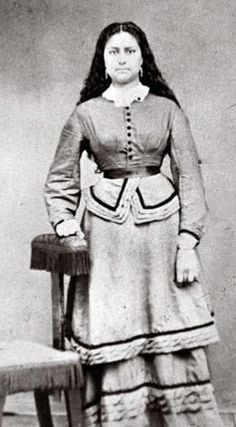Joseph Lafayette Meek
 Joe Meek
Joe Meek
Joseph Lafayette Meek was born in Washington County, Virginia on February 9, 1810. At a young age he signed on as a trapper for William Sublette, leading to an adventurous and dangerous life in the Rocky Mountains from 1829 to 1840. Meek's stories of these years included a hand-to-paw encounter with a grizzly bear, a narrow escape in a confrontation with a Blackfoot warrior, the death of his first Indian wife in an attack by a Bannock raiding party, and his second marriage to the daughter of a Nez Percé chief. Early in his mountain man career, Meek had also been among the first Americans to travel overland to California, accompanying Joseph Walker on his 1833 expedition across the Sierras to the Yosemite Valley.
With the decline of the fur trade as a commercial enterprise in the Northwest, he settled on a land claim near Hillsboro, Oregon in 1840. Meek became active in efforts to form a government and at a meeting at Champoeg in 1843 he was elected sheriff of the provisional government. One of his duties was to act as tax collector and he also conducted the first official census of the Oregon territory in 1845. Meek served as a provisional government legislator form 1846 to 1847.
With the decline of the fur trade as a commercial enterprise in the Northwest, he settled on a land claim near Hillsboro, Oregon in 1840. Meek became active in efforts to form a government and at a meeting at Champoeg in 1843 he was elected sheriff of the provisional government. One of his duties was to act as tax collector and he also conducted the first official census of the Oregon territory in 1845. Meek served as a provisional government legislator form 1846 to 1847.
 Jenny Meek - Daughter of Joe Meek
Jenny Meek - Daughter of Joe Meek
In the spring of 1848 he traveled to Washington, D.C. with news of the killings at the Whitman Mission and the ensuing Cayuse War. On his way to the nation's capital, he described himself as "envoy extraordinary and minister plenipotentiary from the republic of Oregon to the court of the United States." While in Washington, he argued forcefully for making the Oregon Country a federal territory. Congress granted the petition and Meek, now elevated to U.S. marshal, accompanied newly appointed territorial governor Joseph Lane to Oregon in the spring of 1849. It was his job as marshal in 1850 to hang the five Cayuse Indian men convicted in relation to the Whitman massacre. Meek served in the Yakima Indian War from 1855 to 1856 before retiring to his farm.
In the late 1860s, Frances Fuller Victor interviewed him many times for a book on early Oregon history. The results were published as The River of the West . Meek enjoyed story telling and gave speeches promoting the book in the early 1870s. He died on June 20, 1875.
In the late 1860s, Frances Fuller Victor interviewed him many times for a book on early Oregon history. The results were published as The River of the West . Meek enjoyed story telling and gave speeches promoting the book in the early 1870s. He died on June 20, 1875.